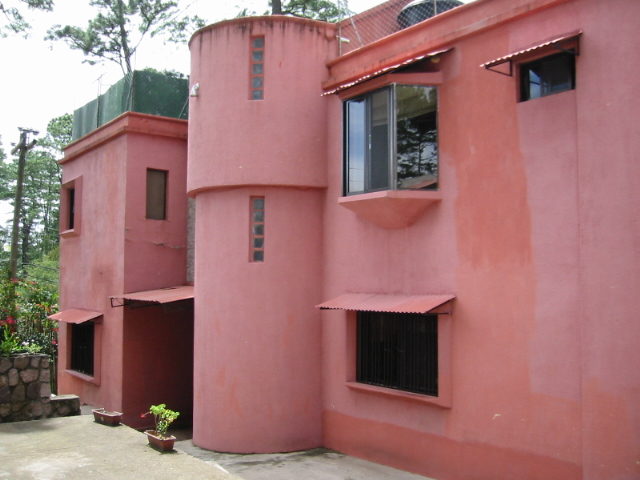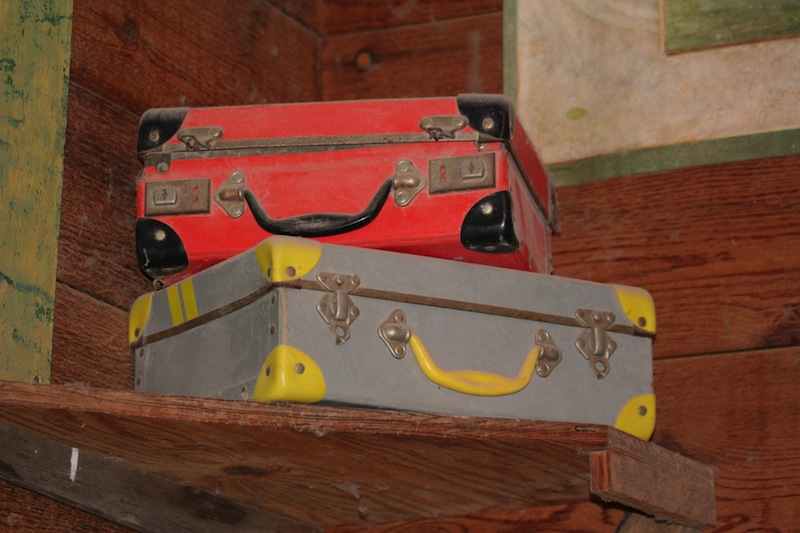
Winner of the Maria Pia Forte Prize – Travel Reflections
By Lisa Clark
“People from the neighborhood have been asking,” Rumiana said, her voice humming cello rich and mellow, “whether you and your husband are going to buy my baby.”
“Really?” The revelation failed to jar me. Trafficking in babies has been a lucrative trade for some time in Eastern Europe. An infant may cost up to $34,000, although the mothers generally end up with a pittance. Though Rumi wouldn’t consider selling her baby, many neighbors in the Bulgarian slum where she lived simply could not understand why Americans would have anything to do with her. Conjecturing as to the reason was a pastime many of them engaged in.
“Can you meet me at the polyclinic?” Rumi asked over the phone. “It’s urgent.” Scared because of abdominal cramping and inactivity of her fetus, a visibly pregnant Rumi smiled weakly as I neared. I doubted she and her baby were in any actual danger, but her scrunched forehead and the slow circling hand on her belly convinced me she should talk to a doctor.
The terrazzo steps we climbed to the fourth floor sagged wearily from thousands of footfalls. Shadow filmed the once peach-colored walls that hugged floors bordered with a fat edging of ground-in dirt. Flimsy fringe mops had failed to lift the dust and debris at the base of chairs and benches.
Traversing an empty corridor, we first stopped outside the door of Rumi’s gynecologist. No signs of life there. The locked office doors of one doctor after another shouted their inaccessibility. How absurd to think we’d find a doctor working on Saturday and even more absurd to think they’d want to see Rumi.
“Sit down,” I insisted when we were again outside. Though the area lacked benches, a concrete planter served as a seat.
Leaving Rumi to rest, I bought a cup of cappuccino at a nearby kiosk, hoping the purchase might make the seller more responsive to my question. “Do you know of any gynecologists? There’s a pregnant woman over there,” I said, gesturing toward Rumi, “who needs help.”
Despite her baby bump, Rumi looked malnourished even from a distance. Sitting under the fierce midday sun, her long black hair pulled into a low ponytail sucked in heat.
The seller blurted the question to a second woman, who was able to supply a name and number.
Had one of Rumi’s neighbors seen me with her that day and conjectured that I had a vested interest in the child she carried? Who knew? Perhaps they were merely trying to make sense of a blonde-haired blue-eyed American woman and her husband coming to the poorest section of town to spend time with a woman whose home didn’t even warrant an address.
Back in 1992, when my family and I first moved to Bulgaria, I had no inkling that my life would intersect and become entangled with Rumi’s. While living in the capital of Sofia and working for a non-profit organization, my husband and I distributed aid for orphanages, assisted with the adoption of kids who otherwise had no real future, collected funds to help pensioners pay for their heating bills, taught English, and worked to meet various other needs for the next seven or so years.
After a break of several years, we returned to Bulgaria in 2005 to continue non-profit work, though this time we changed location. In our absence, Sofia’s street noise had grown by decibels as wheezing communist-era vehicles shared the roads with late model Mercedes. The city had morphed into a noisy, dirty metropolis where transplanted young people from towns and villages scrambled to find work.
The small city of Blagoevgrad, tucked into Bulgaria’s southeast corner, offered a cleaner, quieter, slower pace of life. It also offered something we had little experience with in Sofia: close contact with Roma. Though the European Union insists that “Roma” is the politically correct term for this race, many Bulgarians prefer the epithet “Gypsies.” Because our city is so much more compact than Sofia, we regularly cross paths with members of the Roma population hoveled in the poorest neighborhoods.
Although many Roma fit the stereotype most Bulgarians have of them—thin, dirty, poorly clad, and uneducated—others shattered that image. Rumi was one of them. The first time I met her, she greeted me with a calm gentleness that could settle a snarling mongrel. Though she was poor and struggling to take care of herself and her family like so many other Roma, when Rumi opened her mouth, a smooth deep voice uttering intelligent, comprehensible words emerged.
She welcomed me into her family’s home, a sorry little shack that offered little more than shelter from the elements. They had suspended a small hammock from the ceiling where her young son slept, tied in to keep from falling. In the corner crouched a low table that her husband had fashioned out of scrap lumber.
Though uneducated, Rumi’s thoughts communicated a raw intelligence. Her face, with the dusky hue that makes the Roma so recognizable, was youthful and pretty. She’d already given birth three times by the time she reached twenty-five; in another setting, she might have been a model.
Unlike many of those who shared the ghetto’s meager water supply—a pipe, located a couple hundred feet above her shack, that stuck from a dirt bank like a chicken foot poking out of a waste pile—Rumi managed to keep her clothing, herself, and her children clean. Her husband, Dancho, helped her by hauling water.
In contrast to many of their neighbors, Rumi and Dancho had decided not to steal. “One woman I know pestered and badgered her husband to steal so she could have gold jewelry and other nice things,” Rumi confided to us. “But the police caught him and he’s in jail and she’s left to raise her kids alone. It’s so much worse for her now.” Other women in the neighborhood stole small items like socks from sellers. “They say the sellers can afford it,” Rumi explained.
Rumi also distinguished herself in another way: she was literate. When her neighbors needed something read, Rumi was one of the few people they could go to for help. Knowledge in even small areas is a boon to the Roma, who sometimes miss out on government aid because they lack the skill to decipher and fill out documents.
As we spent more time with Rumi, she slowly shared more of her life story. Her five siblings all have different fathers and she has no idea who her own father is. “When I turned fourteen,” she revealed after we’d known her for over a year, “my mother sold me as a bride.” Rumi told the story with hardly a change in inflection.
Though Rumi’s “husband” only once had sex with her—something we’d call rape in the West—she became pregnant. “His family started mistreating me and my husband’s brother tried to force himself on me.” Rumi’s mother, apparently stricken with guilt, reclaimed Rumi and took on herself the raising of Rumi’s baby. Her mother must not have felt too bad, though; some time later, she sold Rumi again. That family used Rumi for slave labor in gathering their tobacco harvest. When they were done with her, they allowed Rumi to return home. When she discovered that her mother was going to sell her again, this time to human traffickers as a prostitute, Rumi ran away.
When she and Dancho married and began a family, Rumi finally had a home with someone who loved her. Life, though, has never been easy for them. For income, Dancho collects scrap materials. Often Rumi and her children have no breakfast until Dancho returns from scavenging.
Life is a constant struggle for Rumi and Dancho. Their children, living in unsanitary conditions and surrounded by others who pass germs to one another like World Cup players pass soccer balls, are often sick. Being uneducated, Rumi and her neighbors can’t figure out which maladies justify a visit to the doctor and which don’t, so they run to the doctor for even minor complaints. Health care and medicine aren’t free, so they dip into money that might otherwise be used for food, firewood, diapers, and other necessities.
When you live in abject poverty, everything becomes urgent. Small problems cascade and become overwhelming emergencies. You lack the buffer zone that adequate resources provide. Some people, ignorant of the extent of the challenges the Roma face, offer “solutions” without considering the ramifications. “When I told one doctor that I didn’t have money, he suggested I go out and steal,” Rumi said once.
“Should I steal from you?” she asked him.
I doubt the man offered that solution to a Roma again.
About a year ago, Rumi had an operation to remove a breast tumor. Afterwards, a doctor told her, “Because you’re taking this strong medicine, you can’t get pregnant.”
But what did that mean? That it wasn’t possible for her to become pregnant or that she shouldn’t get pregnant? She understood the former and, because she and Dancho thought they could do without condoms, Rumi became pregnant again. New problems arose like mounds of trash at the fringes of their neighborhood.
Emergency after emergency plagued them: frequent trips to the doctor, the need for prenatal vitamins and medicine, diapers for her youngest, and dental problems that drove Dancho to yank out his own tooth with pliers.
During that time, when I asked her how she was doing, Rumi’s response was inevitably, “So so.” (In fact, I can’t remember her ever answering that she was doing well or even OK.) Life, though perhaps never pleasant for Rumi, had become even harder.
When the time finally came for Rumi to give birth, she went to the local hospital. She might as well have stayed home. There on her hospital bed, she gave birth alone, with the help of no one. A cleaning lady discovered her afterwards and called the doctor.
I have a picture of Rumi and Dancho and their baby girl at their home not long after she gave birth. With smudged and dirty aquamarine walls surrounding them, Rumi and Dancho sit on the family bed, which is layered over with a thin carpet for protection. Baby Antoaneta lies between them, her swarthy face capped with short black fluff.
Rumi’s sad attempt at a smile reveals so much: sadness, weariness, and lack of motivation and drive.
Maybe she should look happier. Things went amazingly well considering the odds against a normal delivery and healthy infant. Perhaps she was suffering from post-partum depression or from lack of sleep because of the baby’s eating schedule and their battle with bedbugs. Maybe financial woes, exacerbated because the doctor forbade Rumi to nurse her baby, weighed on her. Or perhaps all these factors, blended together to create wide-sweeping gloom with no end in sight, had whisked away any snippets of joy over a healthy baby.
I’ve always admired those gritty little weeds which so tenaciously cling to life that they’re able to punch through a slab of cement and thrive. I see Rumi straining to survive in a similar way. I hope she succeeds.
Life shouldn’t be so hard.




